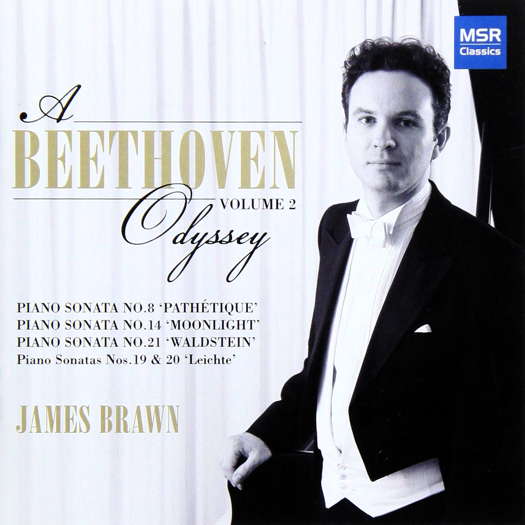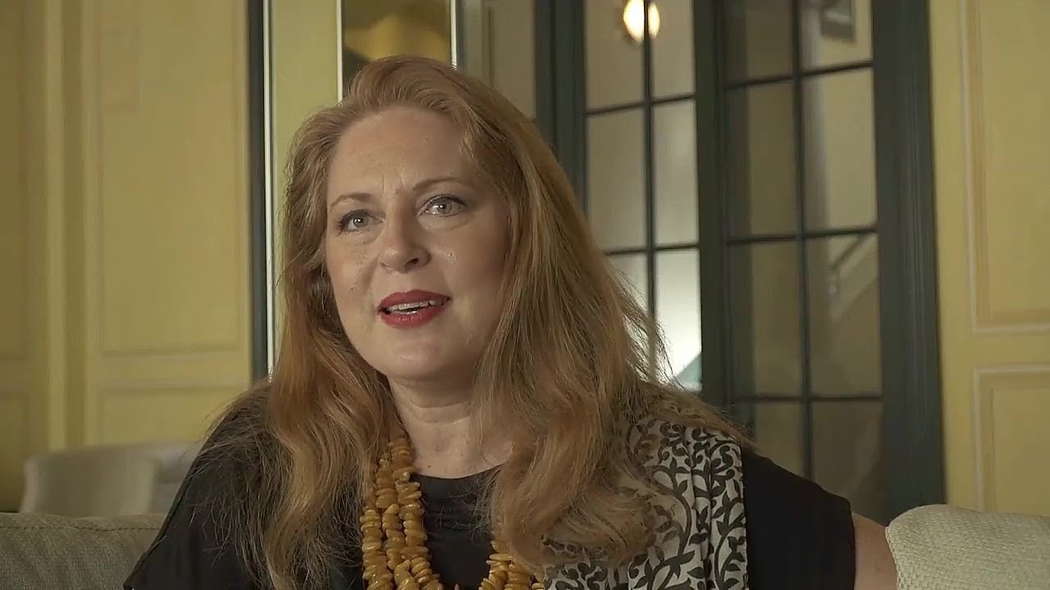- Heritage Records
- Derventio Brass
- Mihai Amihălăchioaie
- Alpha
- Renna Manduell
- Turkish Cypriot
- Beyonce
- Shakespeare: A Midsummernight's Dream
 DISCUSSION: John Dante Prevedini leads a discussion about Composers, individuals or collective?, including contributions from David Arditti, Halida Dinova, Robert McCarney and Jane Stanley.
DISCUSSION: John Dante Prevedini leads a discussion about Composers, individuals or collective?, including contributions from David Arditti, Halida Dinova, Robert McCarney and Jane Stanley.
 SPONSORED: CD Spotlight. Perfect Indeed - More Beethoven from James Brawn, recommended by Andrew Schartmann.
SPONSORED: CD Spotlight. Perfect Indeed - More Beethoven from James Brawn, recommended by Andrew Schartmann.
All sponsored features >>
Romantic Ideals
PATRICK MAXWELL visits Vienna
for Puccini's 'Tosca'
The Italian operas that have enchanted audiences for almost two hundred years help to mark an important point in the artistic development of the nineteenth-century. Verdi, whose works formed the backbone to all of what followed, represented a style firmly based in romantic ideals. Puccini and his contemporaries were the first purveyors of the Italian verismo style, which could be seen as in tune with the realistic trend in literature; opera created a platform to show the hardships of contemporary or historical society. Puccini's work shows both a development in music temperament, which is unsurprising at the turn of the twentieth-century, and a more developed storyline.
The Vienna Opera House, despite not perhaps having the architectural finesse that Covent Garden possesses, is still a spectacle to behold, and the city of Mozart, Beethoven, Mahler and Schoenberg is still full of the aura of brilliance. The gargantuan orchestra, directed by Marco Armiliato, gave a sound that was too verbose, emphasizing to a higher degree than needed the numerous leitmotifs to introduce characters throughout the orchestra.

Austrian soprano Martina Serafin
Tosca was well evoked in the solemn and reliable tones of Martina Serafin, accompanied by the delinquent painter Cavaradossi, played by Aleksandrs Antonenko. Antonenko grew into his part as the performance went on, with his final pleas expertly carried out, especially in the extraordinary love aria 'E lucevan le stelle'. The sinister Baron Scarpia, played by Željko Lučić, was the clearly malevolent force he should be throughout, and his evil desires were expertly performed.
Whilst La bohème is an opera set among the destitute in mid-eighteenth-century Paris (and performed first with a nostalgic Parisian of the Belle Époque in mind), Tosca is set in 1800 in Rome as fear of revolutionary forces mixes with the tyrannical methods of a theocracy (although in fact Rome was under a state of chaos and anarchy as the Battle of Marengo loomed). Scarpia's lust for the famous Tosca is muddled with his unquenchable desire for power. The tale takes the traditional line: Cavaradossi's love for Tosca and his hardships as a result, and Tosca's moral fortitude in holding off the power and threats of Scarpia. It is made all the more vivid by Puccini's engrossing, memorable score.
The performances, from all singers, were not in themselves remarkable; emotional, but not exceptionally innovative or brilliant. I felt that, as opposed to the mix of modernity and tradition of the Royal Opera House, there was distinct focus solely on the latter on display here. The sets were almost tediously conservative in their dullness, acting more as background music than supporting vocals.
This Viennese performance had all the hallmarks of what one would expect from a production in the heart of the Western classical tradition. Although there was a frustrating lack of a modern interpretation, all parts were delivered with a sumptuous finesse that marked out the singers as some of the finest of their type in musical quality. Puccini's masterful, heartbreaking work, which cemented his place as the most enduring operatic composer of his time, was given a worthy rendition.
Copyright © 19 February 2020
Patrick Maxwell,
Buckinghamshire, UK

FURTHER INFORMATION: GIACOMO PUCCINI


